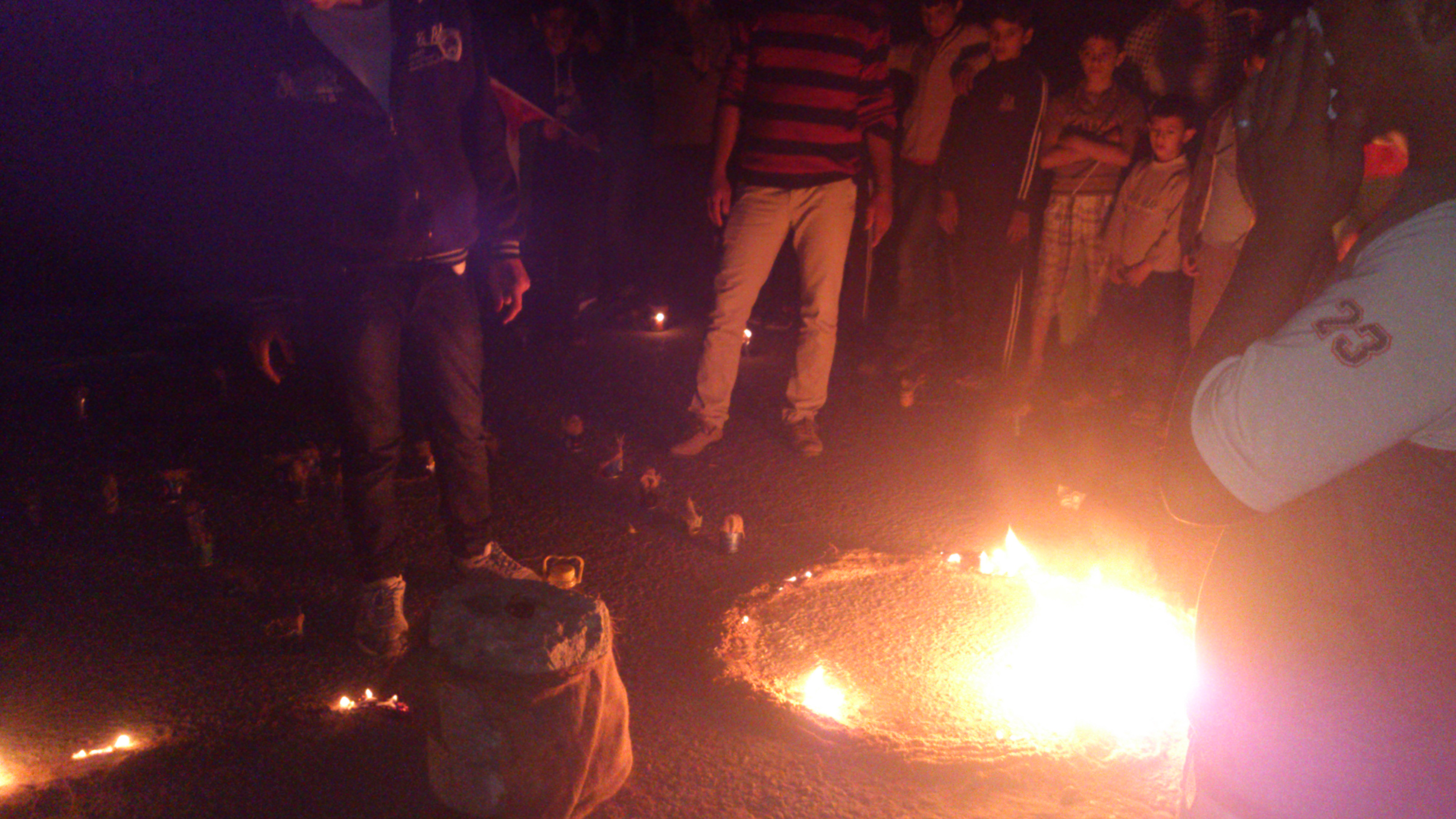Category: Reports
-
“No-one can explain to me why”
22 May 2012 | International Solidarity Movement, Nablus Team | Kafr Qalil, Occupied Palestine The Israeli army invaded seven family homes in the village of Kafr Qalil, south of Nablus, between 1am and 2am on 20th May. They trashed the properties and people’s possessions and stayed in them for several hours apiece. Lastly, they arrested…
-
Photo Essay: Sabastiya remembers 65 years of the Nakba
22th May 2013 | International Solidarity Movement, Team Nablus | Sabastiya, Occupied Palestine In community remembrance of the Nakba, Sabastiya villagers observed 15 minutes of a full lights-out.
-
Prelude to land theft: a livelihood trashed in Aqraba
21st May 2013 | International Solidarity Movement, Team Nablus | Aqraba, Occupied Palestine Seven hundred olive trees were uprooted first thing in the morning of 16th May while a bulldozer got to work destroying the farmer’s concrete water storage facility and surrounding dry stone walls and fences in Aqraba. The Israeli army, who did some…

